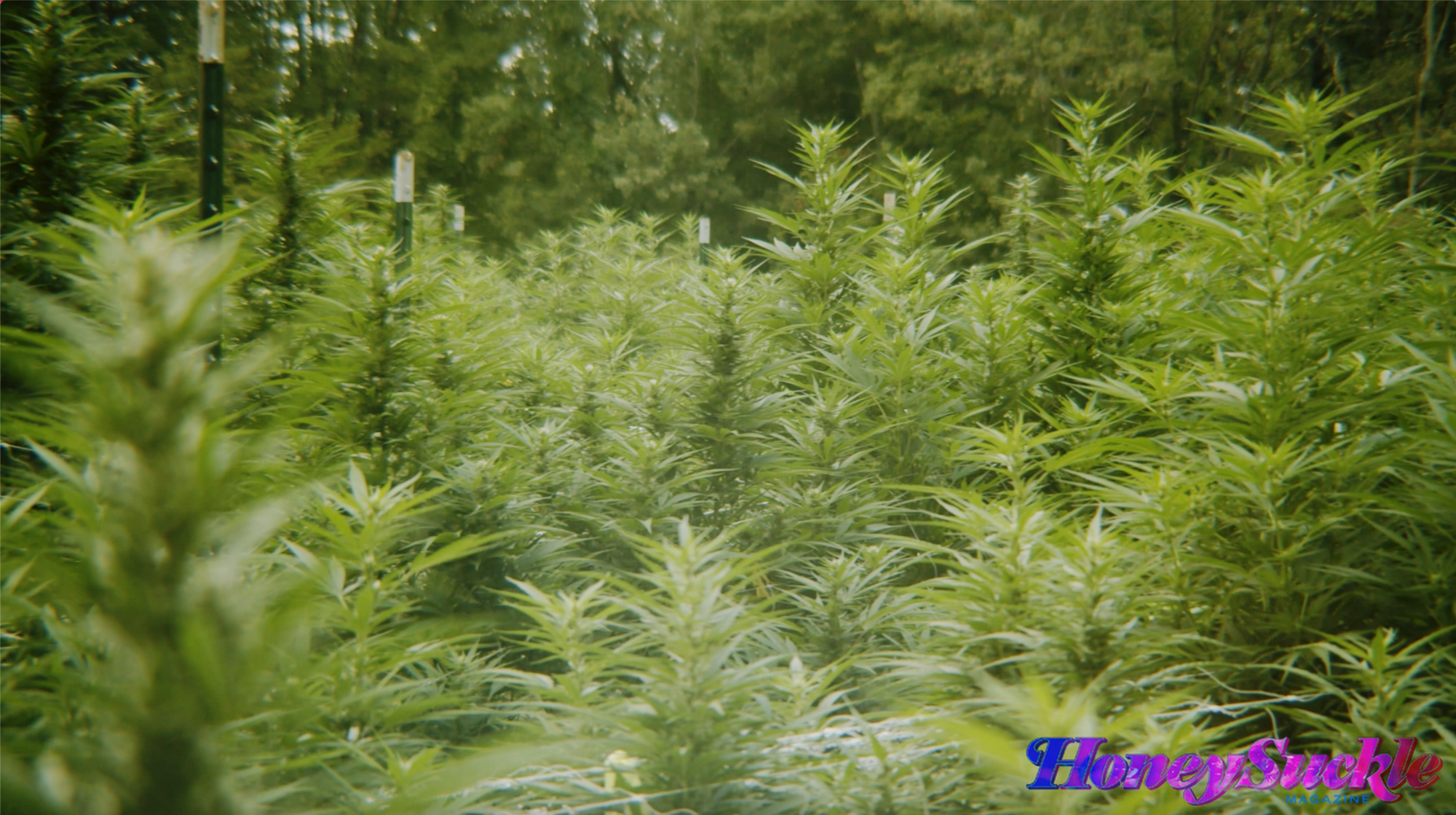Walking through the outdoor grows of EOS Farms in Pittsfield, Massachusetts, it’s easy to see the difference being closer to nature makes in plants. The company is one of the state’s only outside cannabis farms, and its emphasis on regenerative agriculture results in lush, verdant flower teeming with cannabinoids.
Watch full video here:
“It’s that natural biodiversity,” says EOS co-founder and CEO Suehiko Ono. “The beauty of an outdoor grow is [there’s] a local terroir, akin to what you’d find in wine… Our goal is everything into the native soil. Build up the soil using traditional organic, regenerative practices.”
At EOS, cannabis plants go directly into the soil, no extra potting or fertilizers needed. This allows them to feed straight from the millions of bacteria and other microorganisms living in the ground, which fosters the growth of molecules that promote the plants’ own health-balancing systems, and in turn help the humans who consume it.

“Your gut cannot be healthy if it doesn’t have the right microbiology,” Ono notes. “It just simply can’t. And you can’t replace that with any amount of synthetic-made, manmade chemicals [rather than] the function of the biological activity in your gut. Same thing in your skin. Well, plants have [those] exact same adaptive strategies that they’ve developed for thousands of years.”
The EOS team, including Ono and Chief Cultivation Officer Matt Vivrett, believes in using the harmony of planet, plants and humanity to save the world. In addition to their methods of sun-grown agriculture and rain-capture and drip irrigation (practices used to conserve water), they also support and advocate for local sustainable farmers in the region. Ono, who has worked on multiple sustainable farms and has a background in business law and real estate, is a huge proponent of “weed to feed the people,” as he puts it. He sees tremendous value in teaching farmers already committed to holistic cultivation of fruits and vegetables to grow cannabis in the same way.

“One of the ways that I’ve seen as a possibility to bring attention and capital and revenue to small farms is to give this plant to farmers,” he explains. “Let’s integrate it into a very, very dynamic, diverse ecosystem as a means to do that, to give farmers the infrastructure they’ve been wanting… To connect all of these displaced and young farmers who don’t have land, connect them with people who have land [and] capital… It just so happens that if a farmer’s healthy, they can give people healthy food.”
On the EOS website, Ono and his team provide numerous resources for small farmers and those seeking to learn more about sun-grown regenerative cannabis. It’s been proven many times over that cannabis (whether low-THC hemp or high-THC marijuana) needs far less water than crops such as corn, cotton, or soybeans, and that the plant’s own ability to remediate soil makes it an excellent choice for seasonal rotation. Many farmers find that its quick growth turnaround – 3-4 months as opposed to a year for other staple crops – also maximizes its profitability.
Massachusetts is starting to come around to the idea, though at a slow and steady pace. Although the state legalized adult-use cannabis in 2016, retail sales have only been available since late 2018. And as Ono relates, only six of Massachusetts’ current 87 licensed growers are cultivating outdoors. But investors in the space are beginning to understand what Ono, Vivrett and the EOS team know – that terroir matters.
“Where was this plant grown?” Ono asks as an example. “What was the weather and the climate like in the year when it was growing and harvested? Those all matter. Now, do we have it all quantified? Can we send it to an independent lab and test for terroir? No, but you know it when you smoke it. And it has nothing to do with whether it has 3 percent THC. Yes, it’s because it has the THC and all the other complexity.”
Biodiversity will be the path forward in healing our planet, ourselves. According to Ono, EOS is succeeding because he and his team recognize that each piece of the puzzle affects the others.
“We’re not scared of the natural environment,” he concludes. “We’re trying to work with it… trying to have some humility about what we can understand and what we can ‘control.’ The illusion of control – I mean, if you want to create a desert and try to control it, you’re going to be chasing that a lot. But if you learn to just have a little humility, step back, and let the natural environment do what it naturally does, then magic happens.”
--
For more information about EOS Farms, visit eosfarms.com or follow on Facebook.



